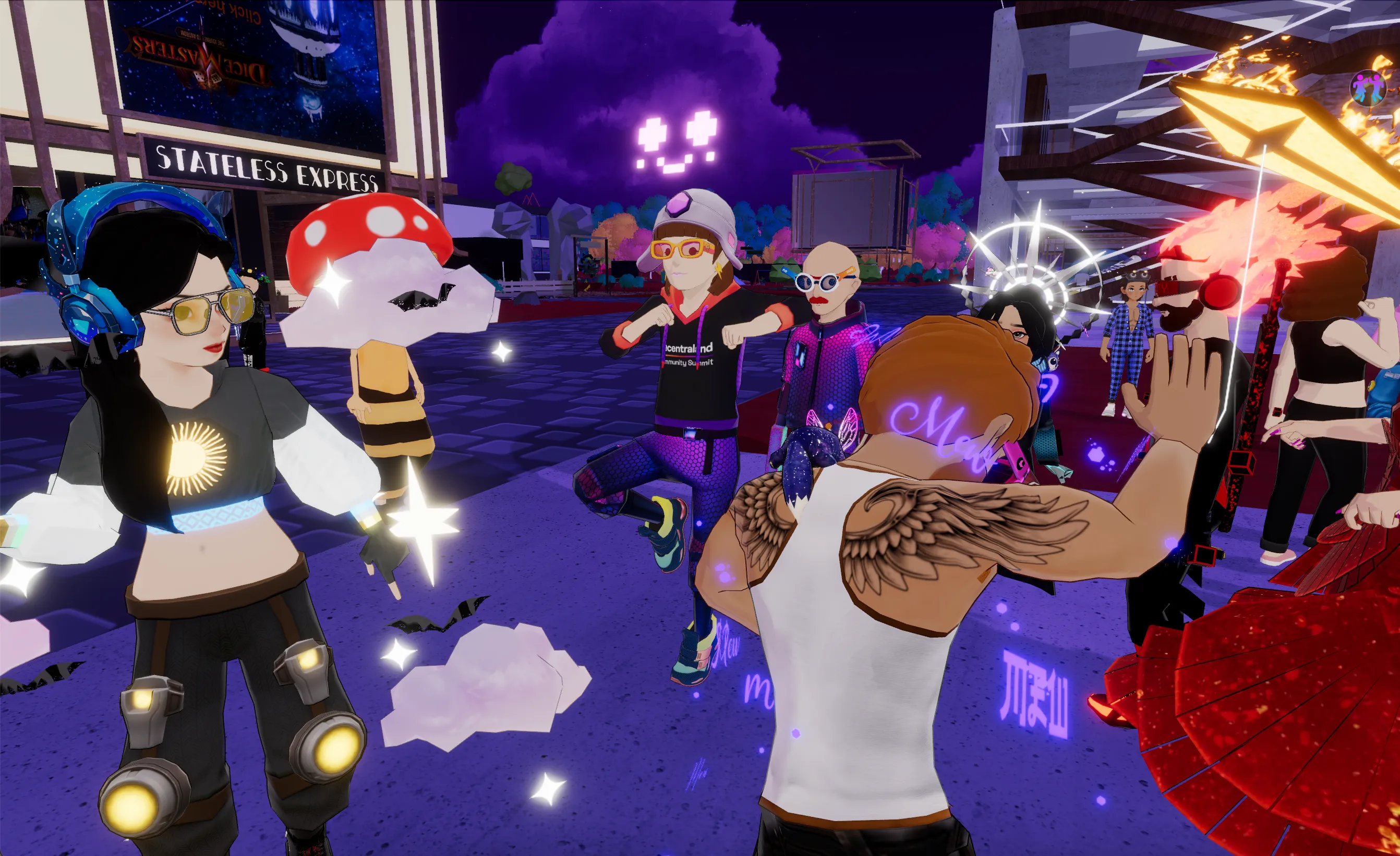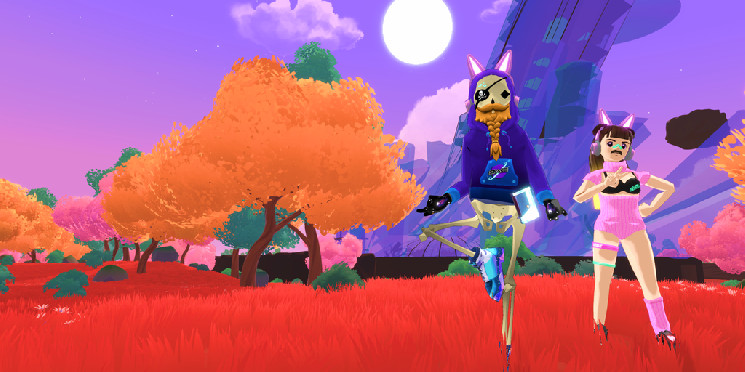Decentraland has revealed launch plans for its long-awaited desktop client, which brings a significant visual upgrade, improved performance, and new mechanics to the Ethereum metaverse game. This huge update marks a pivot for the game’s vision to focus on the “social’ aspect of the metaverse.
Currently, Decentraland is played in-browser, which has limited the game’s graphical capabilities and performance and arguably stunted the evolution of the game in recent years. Set to go live on October 22 as a public beta, the Decentraland desktop client offers major improvements for both players and creators in the metaverse.
When Decrypt reviewed a recorded walkthrough of gameplay, the upgraded graphics immediately stood out. While remaining cartoonishly stylized, the game’s world has a much greater level of detail and a more dynamic environment, plus avatars interact with objects more naturally. The exclusive teaser below offers a taste of the lavish upgrade.
Along with this, Decentraland will finally be a proper open-world game with the desktop launch. In its current state, players move between worlds in Decentraland by teleporting at the click of a button—but with the new desktop client, players can freely walk the length of the entire map.
This deepens the game’s immersion, making the player truly feel like they’re in a cohesive metaverse rather than jumping between a series of siloed experiences.
Decentraland’s developers also claim that the desktop client has significantly improved its performance, which has been a major criticism from players and a roadblock that developers faced when trying to advance the game. This improvement shows itself in the form of faster load times and increased frame rates, also enabling a larger number of players to be in the same area without the game crashing.
Nature is more dynamic in the updated client. Image: Decentraland.
“So far, we have been testing with over 200 avatars in the same place, and the client has been holding without any issues,” Agnieszka Besz, Engineering Manager for Decentraland, told Decrypt. “With the old client, we had to make a hard limit of 100 people per realm because the client was barely holding.”
Double the amount of players can exist in the same realm, Besz claims, but the team has yet to fully stress test how many players is too many. Decentraland’s annual three-day music festival, starting November 20, could be the game’s first big opportunity to show off its flashy new graphics and ability to host hundreds of people in the same space.
“Usually we split it across multiple stages and different venues. But this time, we’re having one main stage where everyone can experience it together,” Kim Currier, Head of Partnerships and Marketing at Decentraland, told Decrypt.

More players can party in the desktop client. Image: Decentraland.
Going social
This update marks a slight shift in focus for the game’s vision. Previously, Decentraland believed most of its player base would primarily want to build worlds together, but it has found that the social element of the metaverse is its biggest attraction.
Other metaverse platforms have heavily leaned into socializing with strangers and friends. VRChat, for example, usually sees player activity spike during its New Years Eve event, attracting 90,000 concurrent players in 2022—with that figure climbing each year, they claim.
Decentraland’s three-day annual pride event aims to engage its LGBTQ+ community, taking inspiration from the Burning Man festival while focusing on art and self-expression. And the game’s Metaverse Fashion Week attracted 108,000 unique visitors in 2022, although this number fell in the following year to 26,000.
Decentraland is looking to encourage this social element through its new quest and badge achievement system that will reward and track the progress of players.
“Being able to have a code base that allows us to build more concurrent users, performance, [see] in the distance, and being able to have those events where people can be social together,” Currier explained, “is really, really key to where we’re going to go.”
That said, this update doesn’t close the door on Decentraland builders who are responsible for the user-generated content that populates the world. Instead, due to the client’s better performance, Besz claims, builders can create more complex worlds and models with higher resolution textures.
Chill out on a mushroom. Image: Decentraland.
With a desktop client, the minimum hardware requirement to play Decentraland has been updated, albeit still a fairly low bar. A MacBook with an M1 processor and 16GB RAM meets the minimum requirements, with Windows requirements listed on Decentraland’s documentation.
While Decentraland won’t be abandoning its traditional flat-screen roots, the team is also eyeing the possibility of also entering the world of VR.
“[VR] allows for that more immersive social experience. You want to feel like you’re in the space. You want to feel like someone’s right next to you,” Currier told Decrypt. “We know VR is way more immersive, and so that is definitely something we are considering for the future.”
For now, this is a distant fantasy—but the upgraded desktop experience brings this dream closer to reality. For Decetraland on VR to eventually work, the game has to perfect its performance, Besz said. The desktop client is one step towards that ambitious goal.
Edited by Andrew Hayward
Read the full article here

